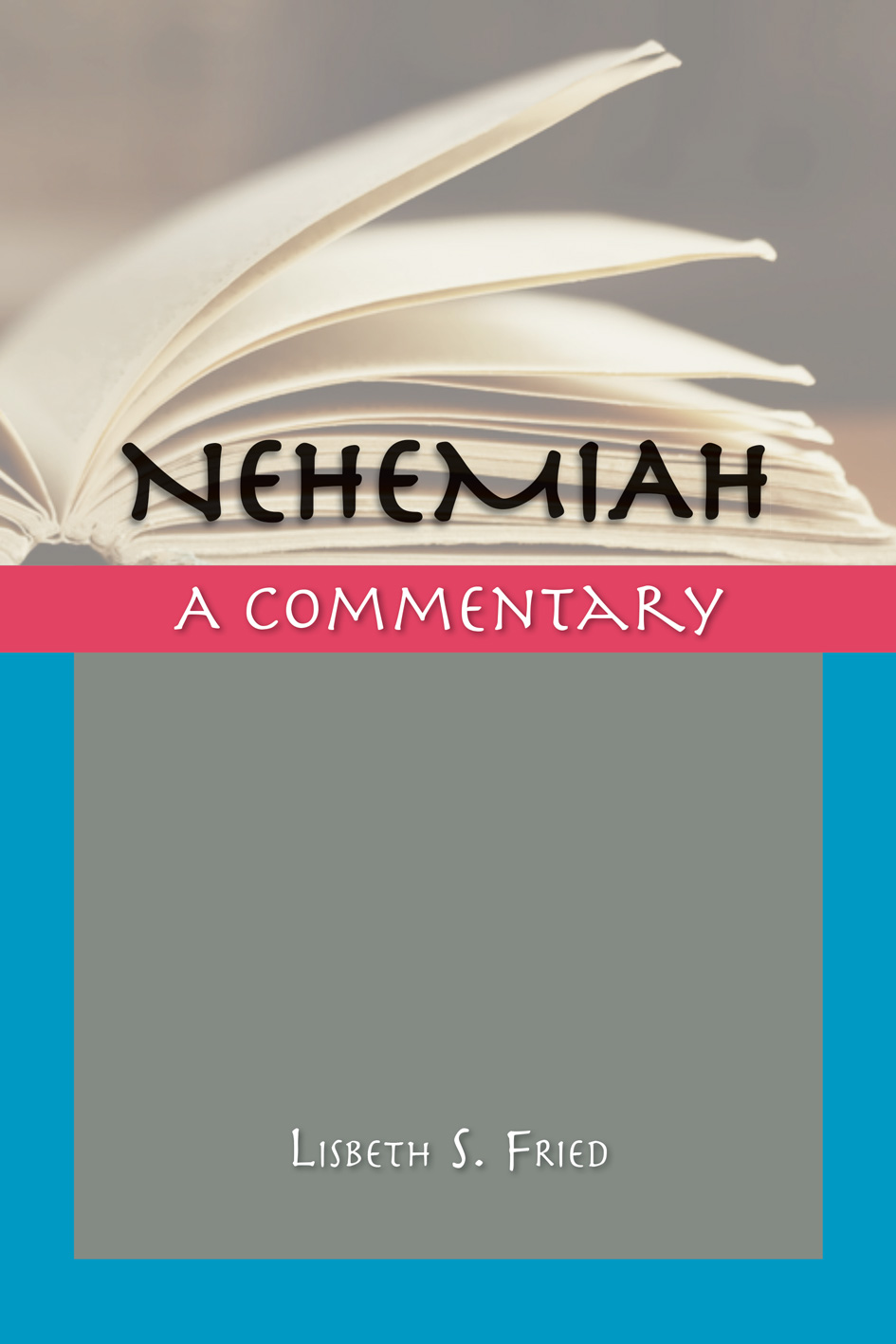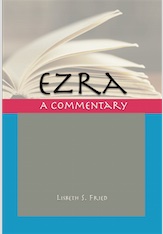Joel: Prophet of the Outpouring Spirit
Published: July 2023
£50.00
Jack Lundbom writes the first full-length critical commentary on the book of Joel in many years, and with a refreshing approach. It contains an extensive Introduction, beginning with the book’s place in the Hebrew and Greek canons, followed by a discussion of the Hebrew and LXX texts, open and closed sections, poetry and prose, rhetoric, the World of Joel, and theology of the book.
The volume employs for the first time ancient section markers and modern rhetorical criticism to better explicate the biblical text. This represents a major advance over source and form-critical work done by earlier scholars, which divided the text largely on the basis of genre and content. Yahweh’s answers to the people’s complaints over a drought and locust plague having descended upon Judah are thus brought together into a moving dialogue instead of being treated separately.
Lundbom provides a new translation of the biblical text, with comparisons being made to other prophetic works in both language and ideas. It sees Joel as standing firmly in the tradition of the biblical prophets, while at the same time being markedly different. With date and provenance of the book nowhere indicated, the world of Joel must be pieced together from internal evidence. Lundbom proposes that Joel is probably early fifth century, written sometime before Malachi (ca. 450). It is clearly post-exilic, being intimately familiar with the Temple with Jerusalem’s walls also standing, which means it must post-date Nehemiah’s rebuilding of city.
Lundbom concludes that the book is largely the work of the prophet Joel, but with a secondary writer or writers in 2.30—3.8 [Hebrew 3.3-4.8] repeating Joel’s authentic hope for Judah and additional judgement on foreign nations.
Joel: Prophet of the Outpouring Spirit
£50.00
Jack Lundbom writes the first full-length critical commentary on the book of Joel in many years, and with a refreshing approach. It contains an extensive Introduction, beginning with the book’s place in the Hebrew and Greek canons, followed by a discussion of the Hebrew and LXX texts, open and closed sections, poetry and prose, rhetoric, the World of Joel, and theology of the book.
The volume employs for the first time ancient section markers and modern rhetorical criticism to better explicate the biblical text. This represents a major advance over source and form-critical work done by earlier scholars, which divided the text largely on the basis of genre and content. Yahweh’s answers to the people’s complaints over a drought and locust plague having descended upon Judah are thus brought together into a moving dialogue instead of being treated separately.
Lundbom provides a new translation of the biblical text, with comparisons being made to other prophetic works in both language and ideas. It sees Joel as standing firmly in the tradition of the biblical prophets, while at the same time being markedly different. With date and provenance of the book nowhere indicated, the world of Joel must be pieced together from internal evidence. Lundbom proposes that Joel is probably early fifth century, written sometime before Malachi (ca. 450). It is clearly post-exilic, being intimately familiar with the Temple with Jerusalem’s walls also standing, which means it must post-date Nehemiah’s rebuilding of city.
Lundbom concludes that the book is largely the work of the prophet Joel, but with a secondary writer or writers in 2.30—3.8 [Hebrew 3.3-4.8] repeating Joel’s authentic hope for Judah and additional judgement on foreign nations.
Nehemiah: A Commentary
Published: Oct 2021
£60.00
Lisbeth Fried’s commentary on Nehemiah is the second instalment of her two-volume commentary on Ezra–Nehemiah. The first instalment, Ezra, was published by Sheffield Phoenix in 2015. Like her commentary on Ezra, Nehemiah too takes full advantage of recent results in archaeology and numismatics, as well as in the mechanisms of Persian and Hellenistic rule, and in the influence of the Hellenistic and Maccabean Wars on Jewish writings.
Like her Ezra, the present volume includes a new translation of the book of Nehemiah, plus text-critical notes on each verse which compare and contrast the Greek, Latin and Syriac versions. The Introduction and extensive chapter commentaries provide a discussion of the larger historical and literary issues.
Although not finalized until the Maccabean period, the book of Nehemiah contains a temple foundation document from the time of Darius I, a story of rebuilding and dedicating a city wall around Jerusalem in the mid-fifth century, and a memoir from a fifth-century governor of Judah. Numerous additions and lists that date from the Hellenistic and Maccabean periods complete the book.
Fried concludes that the book of Nehemiah contains two separate first-person reports—one by the wall-builder, wine steward of Artaxerxes I, whose name we do not know, and one by Yeho’ezer, a fifth-century governor of Judah. We know his name from seals found at the governor’s mansion at Ramat Raḥel. Nehemiah, whose full name was actually Nehemiah Attiršata ben Ḥacaliah, neither built the wall around Jerusalem nor served as a fifth-century governor of Judah, Fried argues. Rather, he was a Persian Jew who had charge of the temple priesthood under Zerubbabel in the days of Darius I.
Fried’s commentary promises to revolutionize how we read the book of Nehemiah.
Nehemiah: A Commentary
£60.00
Lisbeth Fried’s commentary on Nehemiah is the second instalment of her two-volume commentary on Ezra–Nehemiah. The first instalment, Ezra, was published by Sheffield Phoenix in 2015. Like her commentary on Ezra, Nehemiah too takes full advantage of recent results in archaeology and numismatics, as well as in the mechanisms of Persian and Hellenistic rule, and in the influence of the Hellenistic and Maccabean Wars on Jewish writings.
Like her Ezra, the present volume includes a new translation of the book of Nehemiah, plus text-critical notes on each verse which compare and contrast the Greek, Latin and Syriac versions. The Introduction and extensive chapter commentaries provide a discussion of the larger historical and literary issues.
Although not finalized until the Maccabean period, the book of Nehemiah contains a temple foundation document from the time of Darius I, a story of rebuilding and dedicating a city wall around Jerusalem in the mid-fifth century, and a memoir from a fifth-century governor of Judah. Numerous additions and lists that date from the Hellenistic and Maccabean periods complete the book.
Fried concludes that the book of Nehemiah contains two separate first-person reports—one by the wall-builder, wine steward of Artaxerxes I, whose name we do not know, and one by Yeho’ezer, a fifth-century governor of Judah. We know his name from seals found at the governor’s mansion at Ramat Raḥel. Nehemiah, whose full name was actually Nehemiah Attiršata ben Ḥacaliah, neither built the wall around Jerusalem nor served as a fifth-century governor of Judah, Fried argues. Rather, he was a Persian Jew who had charge of the temple priesthood under Zerubbabel in the days of Darius I.
Fried’s commentary promises to revolutionize how we read the book of Nehemiah.




Ruth: A Commentary
Ruth: A Commentary